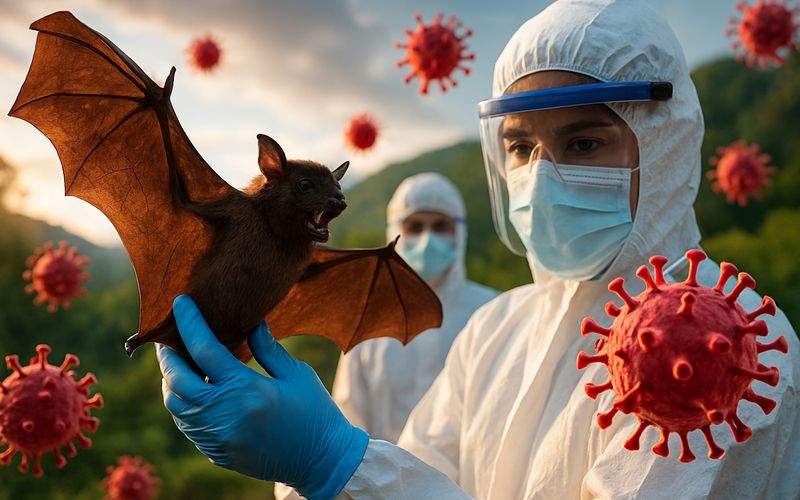
Scientists in China have discovered 22 potentially pandemic-causing viruses never before detected in nature — including two that are genetically similar to horrifying contagions notorious for killing humans, sources say.
The spine-chilling finds were made by researchers studying kidneys collected from colonies of bats in the nation’s Yunnan province between 2017 and 2021 — an alarming development given that the flying mammals were roosting near fruit orchards that neighbor suburban towns.

“These viruses are particularly concerning … raising alarm about potential human exposure via contaminated fruits or water,” molecular virologist professor Vinod Balasubramaniam of Australia’s Monash University says in a statement cited by Newsweek.
It is unknown if human exposure to the new viruses would actually result in infections. But bats have been blamed in the past for introducing several catastrophe-causing bugs to humanity — including Ebola, SARS, MERS and COVID-19.
“The danger to humans is considerable,” Manhattan internist Dr. Stuart Fischer tells the National Enquirer. “These viruses have the potential to jump from bats to humans. They can get inside our bodies and develop a resistance to our natural immune responses. Essentially, the virus can learn to outsmart our immune system.”
Among the newly discovered bugs were two henipaviruses that are as much as 57 percent genetically similar to the deadly bat-borne Hendra and Nipah henipaviruses, which have killed people in Australia and Southeast Asia since their emergence was discovered in the 1990s.

The Nipah virus, in particular, is much feared, according to sources, after a 1998 outbreak in Malaysia that wiped out 105 folks and infected 265. The disease, experts say, has no known treatment and a frightening fatality rate as high as 75 percent.
“The dust has not yet settled on the COVID-19 fiasco,” adds Fischer, author of the acclaimed book The Little Book of Big Medical Emergencies. “Look at how woefully unprepared humanity was for that virus. Attention must be paid to the considerable danger of infectious diseases migrating from animals to people.
“Next time, we might not be so lucky as to develop a vaccine or antiviral treatment within a matter of months.”













